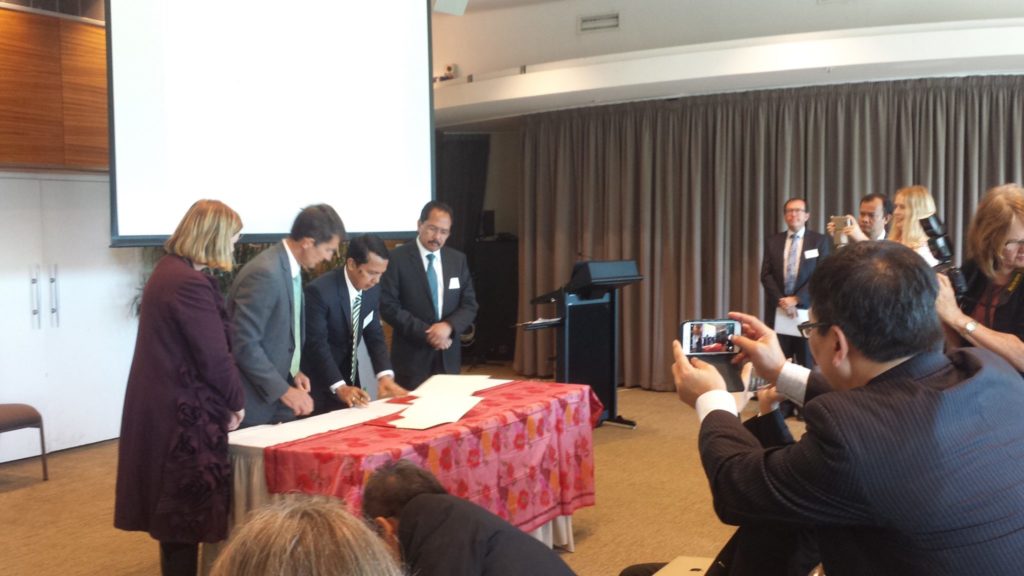On 19 March 2018, CSI was proud to be given the opportunity to attend a workshop held in Te Papa […]
On 19 March 2018, CSI was proud to be given the opportunity to attend a workshop held in Te Papa by The Strengthening Indonesian Resilience: Reducing Risk from Disasters (StIRRRD) program. This program is being jointly implemented by Universitas Gadjah Mada Indonesia and GNS Science New Zealand, with funding from the New Zealand Aid Program.
The event featured presentations from both nations, with an intermission for signatures to the extension to the Memorandum of Cooperation on Disaster Risk Management (DRM). The workshop coincides with the Indonesian President’s visit and discussions with Jacinda Ardern regarding the bilateral cooperation between Indonesia and NZ. This year also marks the 60th anniversary of the formal diplomatic relations between the two Pacific nations.

Signing the extension to the Memorandum of Cooperation on Disaster Risk Management at the recent “Strengthening Indonesian Resilience” workshop at Te Papa, Wellington.
The workshop involved various presentations from Wellington City Council, GNS Science, the Indonesian delegations consisting of several organisations, as well as an interesting presentation from Robinson Seismic Ltd regarding base isolation projects in Jakarta, Indonesia. Speakers at the workshop discussed the efforts made, from the national to the community level, to mitigate the devastating effects of a natural disaster. They stressed that no effort was too small, and highlighted some interesting initiatives raised by the public
A particularly interesting presentation was given by Edi Hasymi, Head of Padang City Disaster Management. Padang is a major city in Indonesia that has experienced multiple large earthquakes in the past with tens of thousands of fatalities. Padang is now at the forefront of cities in Indonesia in terms of awareness of natural disasters such as Tsunami, which can potentially occur following medium to large earthquakes. They have adopted the blue line painting zoning, a simple yet intuitive measure initiated by the Island Bay community in Wellington to denote Tsunami safe zones. Challenges remain in the procurement of vertical shelters for the communities during Tsunami events. They have identified the need for 50 such shelters with a currently available budget for 5. We hope that this is something the NZ and International aid programs can assist with.
CSI, a vocal proponent of non-destructive testing, would be proud to contribute to this resilience project by ensuring there are safe, functional structures in the wake of a disaster, particularly a strong earthquake and Tsunami. We believe our services offer valuable opportunities to reduce casualties, whether we’re in Wellington or Padang!
For more information on how CSI can help with testing for building structural testing contact CSI at www.csiscan.nz or phone 0800 33 7767.
Winners of the 2016 Wellington Gold Awards in Emerging Services and Finalists in the Deloitte’s Fast 50 ‘rising star’ competition 2017.
Leave a Reply
You must be logged in to post a comment.